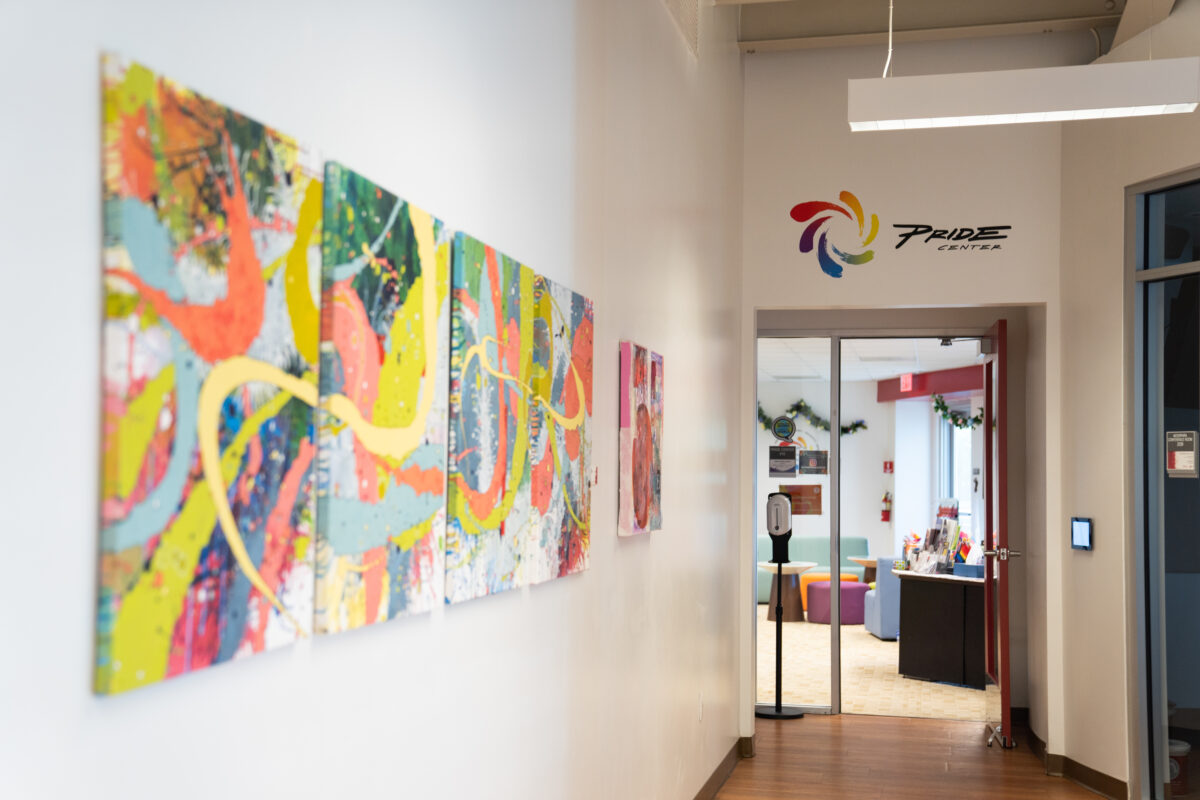The Pride Center at CSUN has long been the home to a diverse queer community, and currently provides a wide variety of services to aid them. Yet, the Pride Center still lacks an in-house counselor who focuses on the specific issues that queer students face.
CSUN currently hosts counseling services for all students, and the University Counseling Services (UCS) webpage has a specific section that notes CSUN’s dedication to LGBTQ+ students. There are around seven counselors who specialize in LGBTQ+ mental health services, but there is no singular, permanent in-house counselor at the Pride Center who can help queer students directly tackle issues in a more personable way.
LGBTQ+ people face certain challenges that their cisgender, straight colleagues do not. According to a 2022 survey conducted by the Center for American Progress and National Opinion Research Center at the University of Chicago, LGBTQ+ identifying people face discrimination in areas such as housing, healthcare and employment.
The CAP report notes that “such discrimination has substantial adverse effects on economic, physical, and mental well-being, and many LGBTQ+ individuals alter their behavior to avoid experiencing discrimination.”
The Southern Poverty Law Center, a nonprofit advocacy group, notes that while there wasn’t a growth in anti-LGBTQ hate groups in 2022, “the movement had one of its most successful years peddling anti-LGBTQ legislation as nearly half of the states saw anti-LGBTQ bills introduced again in 2022.”
According to Insider, the Proud Boys, a far-right extremist group, were present at “nearly half” of the 174 anti-LGBTQ+ demonstrations held across the country last year. Many of these events were located here in California, only trailing behind Texas in terms of Proud Boy turn-out.
With all of this taken into consideration, it’s easy to see why queer focused counseling would be an important resource to have on campus . The current set-up for LGBTQ+ focused provided by University Counseling Service meets once a week on Tuesdays at The Pride Center between 3 p.m. and 4 p.m. Students who are both a part of the LGBTQ+ community and are seeking counseling can drop by for an individual session.
Ren Stone, the Pride Center supervisor, notes that an in-house counselor would reduce the overall workload many counselors have to contend with.
“The counselors that we work with dedicate a lot of their time and energy to supporting our students,” Stone said. “But they have so many other clients, you know, they have other groups that they facilitate, and so, yeah, I’m always just here also to advocate for more in general.”
Stone also made a point of stating that a counselor who is dedicated to working with students with issues surrounding their gender or sexuality is often more approachable for queer students. This may stem from bad experiences with counselors or mental health professionals who were less approachable.
“I think for many students, they still hold a lot of those feelings, and so it might be difficult for them to access medical care or mental health care,” Stone said. “And so, for many of those students, I imagine that if there was an in-house counselor who they knew, you know, also felt comfortable in that said resource center or in that space, then they might be a bit more comfortable seeking help.”
Stone does, however, mention that while an in-house counselor would overall be beneficial, it might present some of its own issues as well.
“And so, one flip side of the coin I could see with having an in-house counselor is, ‘Oh, that in-house counselor is counseling all of our students,’ potentially,” Stone said. “And I could see that being difficult, right? Because you know what happens when folks within the same community or who see each other regularly are going to the same person for their counseling needs all the time. So I could see that as being an issue.”
Another issue stems from budgeting. According to CSUN’s job listings on Indeed, a staff counselor or psychologist makes anywhere between $74,000 to $85,000 annually, with disability management counselors making roughly over $50,000 annually ($4,610 monthly). Seeing as the Pride Center generally works with an annual budget of $330,000, funding a singular counselor would consume a decent portion of their finances.
Despite this, other college campuses have already introduced queer-focused counseling via other methods, such as Antioch University Los Angeles through their Colors LGBTQ Youth Counseling Center’s “telemental” health services. This means that LGBTQ+ students seeking aid can speak to a mental health counselor who specializes in queer-specific issues over the phone. The university also partners with other colleges, such as Santa Monica College, to further assist queer students.
Luckily for students who are in urgent need of mental health counseling, telemental health services are also provided here at CSUN through the UCS and the Mitchell Family Counseling Clinic, which primarily deals with mental health, grief and relationship issues.
While counseling isn’t something that can alleviate all the stressors that queer students have to face, a permanent in-house counselor would provide a more reliable outlet for members of the LGBTQ+ community to feel safe, understood and heard.






